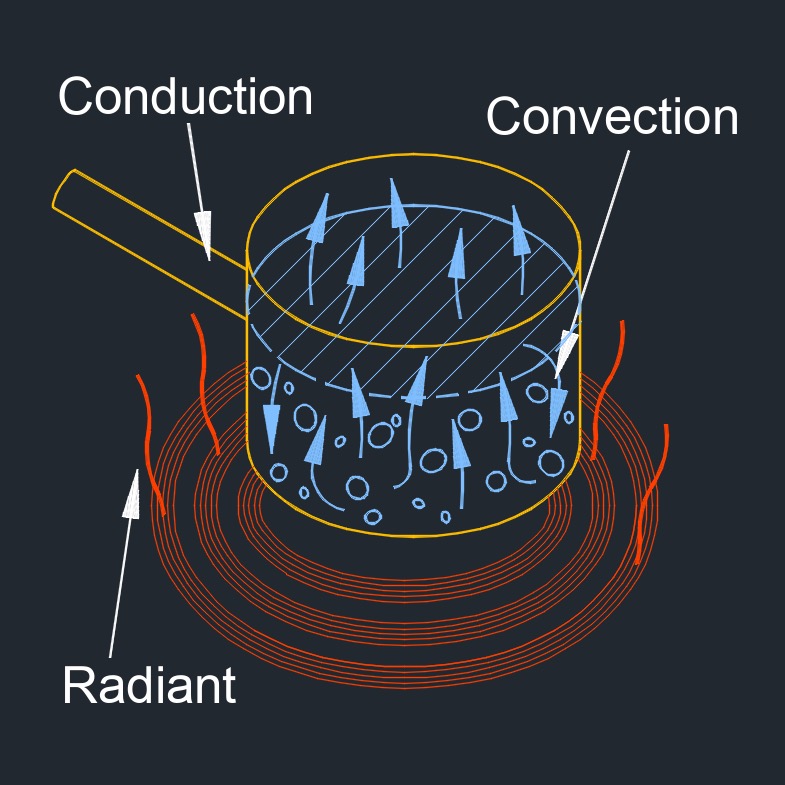Convective Heat Transfer Coefficient
Convective Heat Transfer Coefficient Formula |
||
|
\( h_c \;=\; \dfrac{ Q }{ \Delta T }\) (Convective Heat Transfer Coefficient) \( Q \;=\; h_c \cdot \Delta T \) \( \Delta T \;=\; \dfrac{ Q }{ h_c }\) |
||
| Symbol | English | Metric |
| \( h_c \) = Heat Transfer Coefficient | \(Btu \;/\; hr-ft^2-F\) | \(W \;/\; m^2-K\) |
| \( Q \) = Amount of Heat Transfered Area of the Surface | \(Btu \;/\; hr\) | \( W \) |
| \( \Delta T \) = Temperature Differential Between Solid Surface and Surrounding Fluid Area | \(^\circ F \) | \(^\circ K \) |
 Convective heat transfer coefficient, abbreviated as \(h_c\), also called film coefficient or film heat transfer coefficient, is a measure of the effectiveness of a fluid in transferring heat to or from a surface. It represents the rate of heat transfer difference between the surface and the fluid. The convective heat transfer coefficient is a parameter in convective heat transfer, which occurs when a fluid, such as air or water, is in motion and exchanges heat with a solid surface.
Convective heat transfer coefficient, abbreviated as \(h_c\), also called film coefficient or film heat transfer coefficient, is a measure of the effectiveness of a fluid in transferring heat to or from a surface. It represents the rate of heat transfer difference between the surface and the fluid. The convective heat transfer coefficient is a parameter in convective heat transfer, which occurs when a fluid, such as air or water, is in motion and exchanges heat with a solid surface.
The convective heat transfer coefficient depends on various factors, including the nature of the fluid, the flow conditions, and the properties of the surface. It is often determined experimentally for specific conditions, and correlations are developed to estimate it in different situations.
In natural convection, where the fluid motion is driven by buoyancy forces (hot air rising), the convective heat transfer coefficient is often expressed using correlations specific to natural convection. In engineering and thermal analysis, accurate determination of the convective heat transfer coefficient is crucial for designing heat exchangers, cooling systems, and various other heat transfer applications.

